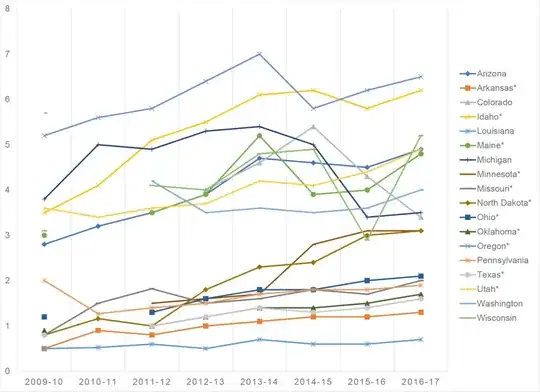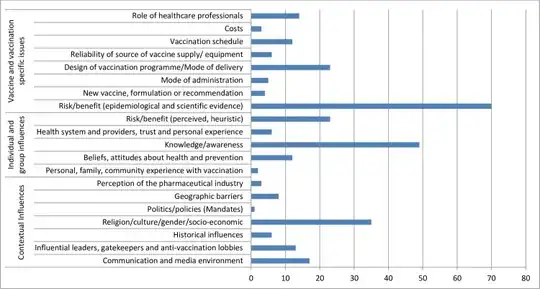The answer depends a lot on what mechanism you imply and who you consider to be "anti-vaxxers". If you consider anti-vaxxers to be all groups of people who as a group oppose vaccination (e.g. for political, religious or other reasons), then CNN is largely right.
If you are looking for a causal link between the anti-vaccination movement and the increasing number of measles cases, it will be hard to prove. Mainly, because no data is collected on why people who get infected did not get vaccinated beforehand. It's also hard to know the number of people who don't get vaccinated because of this movement (people may not get vaccinated for a variety of reasons).
However, the Center for Disease Control (CDC) publishes yearly figures on measles cases in the United States. These are the figures from 2010-2019. The CDC also published information to some of the outbreaks. There are three years with exceptionally high numbers of cases: 2014, 2018 and 2019. In 2014 and 2018 the majority of measles cases occurred in a small number of outbreaks in pockets of largely unvaccinated communities. 2014: 383 cases in the unvaccinated Amish Community, 2018: most of cases in the Jewish-orthodox community in NY State, NYC and New Jersey. For 2019, no specific reason has yet been given. One of the newest studies dealing with vaccine hesitancy and measles Papachrisanthou et al. conclude:
VPDs are on the rise in the US and worldwide secondary to parental misconceptions, vaccine hesitancy, waning immunity, and negative effects on herd immunity.
Olive et al. find that NMEs (non-medical exemptions) for children are on the rise in 12 of 18 states, who permit these exemptions. .
.
Marti et al. look for global reasons for vaccine hesitancy and find that:
The most frequently cited reasons for vaccine hesitancy globally related to (1) the risk-benefit of vaccines, (2) knowledge and awareness issues, (3) religious, cultural, gender or socio-economic factors.
An overview of the reasons can be seen in this graphic 
So the one of the main criticisms of the anti-vaxxer movement (risk of vaccines) is the biggest driver of vaccine hesitancy globally.
This influences the US, because international travelers carrying the virus come to the US and infect people in regions where the vaccination rate is low (Papachrisanthou et al.).
The majority of the 2018 measles outbreaks have been in unvaccinated individuals exposed to international travelers. Europe is also experiencing the highest measles outbreak in over 2 decades secondary to suboptimal vaccination rates.
As for expert opinion on a link between anti-vaccination and measles outbreaks: The WHO clearly states in this report,
Because of low coverage nationally, or pockets of low coverage, multiple WHO regions have been hit with large measles and diphtheria outbreaks causing many deaths.
Furthermore, the WHO has included vaccine hesitancy as one of the 10 threats to global health in 2019.
So CNN's claim is not an exaggeration. It depends, though, on who you consider to be "anti-vaxxers". If you include people who do not vaccinate for religious reasons in the anti-vaxxers, CNN is right. If you only include people who do not vaccinate because they believe conspiracy theories that vaccines are harmful to be anti-vaxxers, their influence is plausible, but it is difficult to prove causation.

